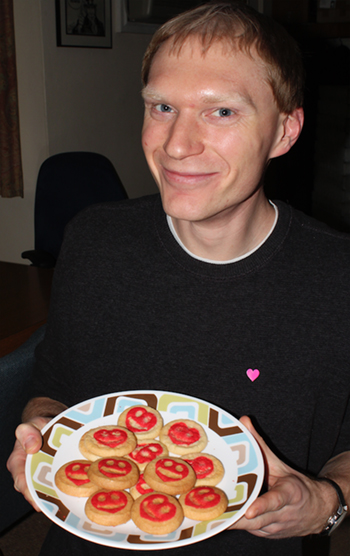 Is state pride considered a deadly sin? If so, I’m going to burn for it.
Is state pride considered a deadly sin? If so, I’m going to burn for it.
I became very proud of my home state of Vermont recently when I read the Gallup poll results on religiosity across the U.S. The results, published Feb. 3, paint a portrait of the U.S. that will not be surprising to most, but are fun to read nonetheless.
The grand prize for “least religious state” goes to Vermont, which boasts a whopping 56% nonreligious citizenry! Nearly 30% of those polled nationally identify as nonreligious. Gallup classifies Americans as “nonreligious” if they indicate in their poll response that “religion is not an important part of their daily lives and that they seldom or never attend religious services.”
Respondents are classified as “very religious” if they say “religion is an important part of their daily lives and that they attend religious services every week or almost every week.” “Moderately religious” (a third category) applies to those stating that “religion is important in their lives but that they do not attend services regularly, or that religion is not important but that they still attend services.”
Both coasts fared well in the Gallup poll. East Coast runners-up include New Hampshire (51% nonreligious), Maine (45%), Massachusetts (44%) and Connecticut (41%). On the West Coast, Oregon (43% nonreligious) edged out Washington (41%) and California (37%). Honorable mentions from elsewhere in the U.S. include Nevada (39%), Colorado (39%), Hawaii (36%) and, perhaps surprisingly, Wyoming (39%).
At the other end of the spectrum are the usual suspects. Most religious states include Mississippi (61% very religious), Utah (60%), Alabama (57%), Louisiana (56%) and South Carolina (54%), though notably, 26% of respondents in Utah fall into the nonreligious camp.
How did FFRF’s home state of Wisconsin fare? Our 36-year presence here has undeniably shaped state/church relations and freethought awareness — from our secular “nativity” displays in the statehouse to our recent victory removing bibles from the University of Wisconsin-Extension’s guest rooms. Even so, Wisconsin still only ranks 21st on the list of least religious states. According to Gallup, 38% of Wisconsinites are very religious, 32% are moderately religious and 31% are nonreligious.
Due to growing up in Vermont with parents who did not attempt to indoctrinate me with any religious ideology, it took me a long time to realize how normalized religion is in other parts of the country. It wasn’t until I had graduated from college (in Connecticut, eighth least religious) that I experienced life as an atheist in an aggressively religious state.
I spent a few months in Oklahoma (10th most religious, 49% very religious) and quickly realized that when it came to my nonbelief, I had a choice between being silent-but-accepted or being an outspoken outsider. This was not a difficult choice for me, given the temporary nature of my stay, but the reality that some atheists and agnostics face this choice every day helped solidify my desire to become a freethought advocate.
So now I live in Wisconsin, least religious state in the middle quintile of Gallup’s results. While I may look back fondly at my statistically more secular life in Vermont, FFRF has provided me with an amazing opportunity: to advocate on behalf of fellow freethinkers, many of whom face far more daunting barriers to their freedom of conscience than I ever did.
For that opportunity, I would even move to Mississippi.
To see how your state compares to the nation, search for “least religious” at gallup.com.
Sam Grover first worked for FFRF in 2010 as a legal intern while attending Boston University School of Law. He returned to work as a constitutional consultant for FFRF in the fall of 2013.

